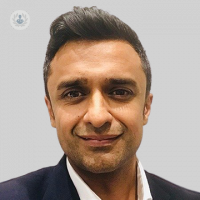ERCP: what is it, and how long does it last?
Written by:Top Doctors recently had the pleasure of speaking with esteemed London-based consultant hepatologist, Dr Deepak Joshi, who, here in one of today’s articles, provides a comprehensive overview on all things endoscopic retrograde cholangiopancreatography.

What is an endoscopic retrograde cholangiopancreatography (ERCP)?
It is an endoscopy of the bile duct, to either take a stone out, or to put either a plastic or metallic stent into the bile duct. We can also access the patient’s pancreas to remove stones or strictures.
How can patients prepare themselves for an ERCP?
Before any ERCP, the patient will be reviewed and assessed to see if the patient is suitable enough for the procedure. We will also carry out a blood test. In terms of the day of the procedure, the patient will not be able to eat not drink for six hours before their procedure. We perform the procedure under general anaesthetic.
How long does the procedure normally last?
It depends if we are taking out a small or large stone, but on average, it generally lasts between 45 and 60 minutes.
Is it a risky procedure?
There are some associated risks that patients may suffer from after undergoing an ERCP. The main ones include the following:
- infection
- small tear in gullet or stomach
- bleeding
- pancreatitis
What does the recovery period after an ERCP look like?
After the procedure, you may experience some mild discomfort in the abdomen, but usually this will have disappeared the day after the operation. Patients usually need one to two days before they get back to their normal daily activities, but nothing more than that.
Dr Deepak Joshi is a highly revered consultant hepatologist who is an expert when it comes to performing endoscopic retrograde cholangiopancreatography procedures. Consult with him today via his Top Doctors profile to book an appointment with him.


